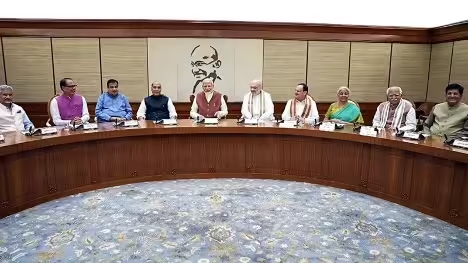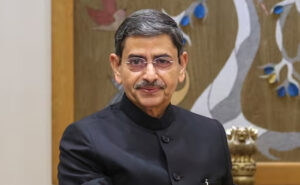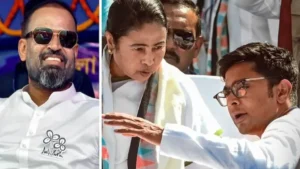Six previous chief ministers and a plethora of administrative expertise are part of Prime Minister Narendra Modi’s new Council of Ministers. Modi’s strategy of utilizing seasoned leadership in crucial sectors of government is further shown by this calculated inclusion.
Principal Appointments to Former Chief Ministers
The Union Ministry of Agriculture has been given to Shivraj Singh Chouhan, the former chief minister of Madhya Pradesh. With his wealth of expertise in state-level administration, especially in an agrarian state like Madhya Pradesh, Chouhan is well-positioned to handle issues pertaining to national agriculture policy and concerns.
Manohar Lal Khattar: Khattar will take charge of the Ministry of Power and Urban Affairs after serving as Haryana’s Chief Minister. His influence on energy and urban development policy is critical to India’s infrastructural progress.
Jitan Ram Manjhi: The Hindustani Awam Morcha (HAM) leader and former chief minister of Bihar has been named to oversee the Union Ministry of Micro, Small, and Medium Enterprises (MSME). This industry is essential for economic growth and the production of jobs, especially in rural and semi-urban regions.
Additional Prominent Former Chief Ministers in the Cabinet
Rajnath Singh: The former Uttar Pradesh chief minister is still the minister of defense. The stability and continuity of India’s military strategy are guaranteed by Singh’s sustained leadership in this capacity.
Sarbananda Sonowal: The Union Cabinet’s portfolio for the former Assamese chief minister has not yet been revealed. He brings to the national government a thorough grasp of regional dynamics from his time as a state leader.
Another noteworthy addition is HD Kumaraswamy, the former Chief Minister of Karnataka. Although the specifics of his portfolio are still unknown, his involvement brings a level of seasoned leadership from a significant southern state.
Strategic Consequences
These former chief ministers’ appointment to Modi’s 3.0 cabinet underscores a calculated decision to combine expertise and administrative know-how. It is anticipated that the efficacy of the Union ministries under the leadership of these leaders would be improved because they have each demonstrated success in their respective states.
Sector-Specific Perspectives
Agriculture: Under Shivraj Singh Chouhan’s direction, the Ministry of Agriculture is probably going to concentrate on cutting-edge farming methods, environmentally friendly agricultural practices, and farmer welfare initiatives. National policy will be greatly influenced by Chouhan’s experience in Madhya Pradesh, a state known for its substantial agricultural output.
Manohar Lal Khattar’s leadership in the Ministry of Power and Urban Affairs is essential as India pursues its goal of a dependable power supply in all areas and continues its urbanization program. The objectives of the ministry are in line with his tenure in Haryana, which is renowned for its quick industrial and urban development.
MSME: Jitan Ram Manjhi is anticipated to stimulate entrepreneurship and small company growth in his capacity as the MSME ministry’s director. He’ll probably concentrate on improving MSMEs’ support networks, encouraging entrepreneurship in rural areas, and making sure that economic growth is inclusive.
In conclusion
The deliberate assignment of important ministries to these seasoned officials suggests that Modi’s cabinet would combine continuity with innovation. Through the utilisation of past chief ministers’ knowledge, the government hopes to further India’s development objectives by efficiently addressing both national and regional concerns. These leaders are positioned to significantly boost their respective industries as they go from state to central control, thanks to their established track records and administrative prowess.







